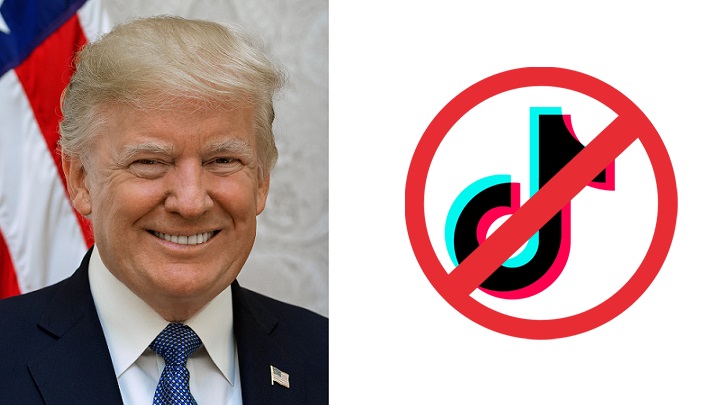Trump Administration May Ban TikTok in the US
President Donald Trump is said to consider banning TikTok in the U.S. because of security concerns.

- The U.S. Secretary of State said that Donald Trump is considering banning TikTok.
- TikTok had more than 37 million users in the US in 2019, and the projected annual growth was over 20%.
TikTok is a Chinese app owned by a Chinese company. It is not entirely clear what the situation of entrepreneurs in China looks like, there are no official data or documents that would confirm or deny the possibility of transferring data from the company to the Chinese government. Whenever there are concerns about our privacy, Chinese companies ensure that no data is shared. Here the situation is similar, because after the ban on TikTok (and 58 other apps belonging to Chinese companies) in India, the local branch of the company has obviously denied everything. Faced with warnings from experts and even hackers, it should not come as a surprise that U.S. Secretary of State Mike Pompeo said that banning TikTok (and other Chinese social media applications) is "something Donald Trump's administration is considering".
In an interview with Laura Ingraham (from Fox News) Pompeo said that the possible ban would be dictated by concerns about whether Chinese apps are sending sensitive data to Beijing to spy on citizens and the state. He also assured that the US authorities will investigate the Chinese applications thoroughly, as they have done in the past with ZTE and Huawei. The threat of TikTok getting banned is very real, especially given that as early as December 2019 it was banned and ordered to be removed from phones belonging to U.S. Navy soldiers, and those who did not do so were threatened to be thrown out of the internal military network.
The application has been under extreme flak recently, which is hard to be ignored, and if the U.S. decides to ban the app on its territory, it may be a signal to the rest of the world that the problem of Chinese software is worth considering. Collecting user data alone may not seem dangerous to us, because "everyone does it". This is of course only half-truth, because while in fact most applications (although there are some laudable exceptions to this rule) collect a lot of information about us, the key is how they use it, because if it is processed for illegal purposes, it is a dangerous business, which should not be underestimated.
0

Author: Mikolaj Laszkiewicz
Have been working at gamepressure.com since May 2020. First, he was a newsman in the Technology department, over time he began to get involved in games and journalism, as well as edit and supervise the Technology newsroom. He previously shared his thoughts on video games in, e.g. various thematic groups. A lawyer by education. He plays on everything and in everything, which can sometimes be reflected in his reviews. His favorite console is the Nintendo 3DS, he plays a new FIFA every year and tries to broaden his gaming horizons. Loves broadly understood computer equipment and disassembles everything that falls into his hands.
Latest News
- „They get more hate than they deserve.” Josef Fares comes to EA's defense and points the finger at Sony and Nintendo
- They used to ban them, now they make money on them. Rockstar opens Cfx Marketplace with paid and free mods
- „I don't get you guys”. New Tower mode in Diablo 4 divides players
- Euphoria didn't last long. „New” footprint of Prince of Persia: Sands of Time Remake turned out to be a painful return to the past
- „It's crazy that 50% of you are lying.” GTA 6 fans faced a tough choice: half would do it without hesitation

